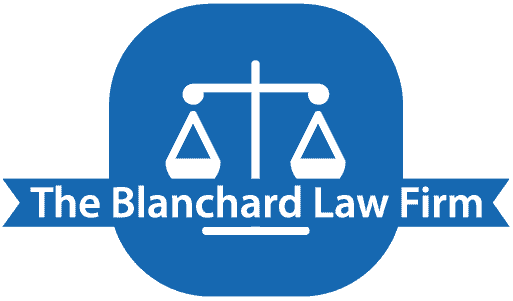
26 Jul Estate Planning for Business Owners: Succession Planning and Beyond
Setting Up For Success
Estate planning is crucial for managing and preserving wealth for individuals, especially business owners. While general estate planning focuses on distributing personal assets, business owners face additional complexities.
Succession planning, a significant part of estate planning, ensures a smooth business ownership and operations transition. However, comprehensive estate planning goes beyond succession to include strategies for tax efficiency, asset protection, and long-term financial security.
This article delves into the essentials of estate planning for business owners, emphasizing succession planning and other vital components.

Importance of Estate Planning for Business Owners
Estate planning should be at the forefront of a business owner’s mind because it ensures their business’s continuity, stability, prosperity, and personal wealth.
Without a solid estate plan, the business might face significant disruptions or collapse upon the owner’s incapacitation or death. This could jeopardize the livelihoods of employees, the financial security of family members, and the legacy the owner has worked hard to build.
One key reason for prioritizing estate planning is the seamless business ownership transition. Identifying and preparing a successor in advance can prevent a leadership vacuum and maintain operational stability.
Furthermore, strategic estate planning can help minimize tax liabilities, preserve wealth for the owner’s heirs, and ensure the business remains financially viable.
Asset protection is another critical aspect. Owners can safeguard their personal and business assets from creditors and legal claims by employing strategies such as trusts and proper business structuring. This protection extends to family members, ensuring their financial well-being.
Estate planning also helps avoid the lengthy and costly probate process, enabling a smoother and quicker transfer of assets. It reduces potential disputes among family members and stakeholders, fostering harmony and clarity in the transition period.
Lastly, estate planning allows business owners to incorporate their philanthropic goals, creating a lasting legacy through charitable contributions and foundations. This not only benefits the community but also provides tax advantages.
In essence, estate planning is not just about preparing for death; it’s about securing the future, protecting loved ones, and ensuring the enduring success of the business.

Succession Planning
Succession planning is a core component of estate planning for business owners. It involves identifying and preparing successors to take over the business. This process includes:
Identifying Potential Successors
Training and Development
Once potential successors are identified, they must be adequately trained and prepared to take over. This process includes:
- Mentorship: The current owner should mentor the successor, giving them insights into business operations, decision-making processes, and strategic planning.
- Formal Training: Enrolling successors in relevant courses or training programs can enhance their managerial and leadership skills.
- Gradual Transition: A phased approach allows the successor to take on increasing responsibilities over time, ensuring they are well-prepared for a full transition.
Legal and Financial Considerations
Succession planning also involves addressing various legal and financial aspects:
- Ownership Transfer: Legal documents such as wills, trusts, or buy-sell agreements must be prepared to facilitate the smooth transfer of ownership.
- Valuation of the Business: An accurate valuation of the business is essential for tax purposes and for determining fair compensation if the business is sold to an external party.
- Tax Planning: Strategic tax planning can help minimize the tax burden of transferring business ownership.
- Funding the Transition: Insurance-funded arrangements, such as life insurance or buy-sell agreements, can provide the necessary liquidity to facilitate the ownership transfer.
Beyond Succession Planning
While succession planning is critical, comprehensive estate planning for business owners encompasses more than just transferring business ownership. It includes various strategies to ensure the long-term financial security and protection of the owner’s assets and interests.
Asset Protection
Protecting business and personal assets from potential risks and liabilities is a vital aspect of estate planning. Strategies include:
- Forming a Trust: Placing assets in a trust can protect them from creditors and legal claims. Trusts also provide privacy and can help avoid probate.
- Incorporation and Structuring: Choosing the right business structure (e.g., LLC, corporation) can offer liability protection and tax advantages.
- Insurance: Adequate insurance coverage, including life, disability, and business interruption insurance, can provide financial security in case of unforeseen events.
Tax Efficiency
Tax planning is essential to minimize the financial burden on the business and the owner’s estate. Strategies include:
- Gifting: Transferring assets during the owner’s lifetime through gifting can reduce the taxable estate and take advantage of annual gift tax exclusions.
- Charitable Contributions: Donating to charities can provide tax benefits while supporting causes the owner cares about.
- Trusts and Estate Freezes: Trusts and estate freezes can help lock in the value of assets for tax purposes while allowing the owner to retain control and benefit from their appreciation.
Retirement Planning
Ensuring a comfortable retirement for the business owner is another key aspect of estate planning. This includes:
- Retirement Accounts: Contributing to retirement accounts such as IRAs or 401(k)s provides tax advantages and secures the owner’s financial future.
- Exit Strategy: Developing a clear exit strategy, whether selling the business or transferring ownership, ensures the owner can retire comfortably.
Estate Administration
Efficient estate administration ensures the owner’s wishes are carried out smoothly. This involves:
- Choosing Executors and Trustees: The process of selecting trusted individuals or professionals to manage and distribute the estate according to the owner’s wishes.
- Updating Documents: Regularly reviewing and updating estate planning documents to reflect changes in the owner’s circumstances, laws, and tax regulations.
- Communicating the Plan: Clearly communicating the estate plan to family members and other stakeholders can prevent misunderstandings and conflicts.
Philanthropic Goals
Incorporating philanthropic goals into the estate plan can create a lasting legacy. This can be achieved through:
- Charitable Trusts: Establishing charitable trusts allows owners to support causes they care about while enjoying tax benefits.
- Foundations: Creating a private foundation enables the owner to make a lasting impact by funding charitable activities.
Conclusion
Estate planning for business owners is a multifaceted process that requires careful consideration and strategic planning.
Succession planning is critical, ensuring the smooth transition of business ownership and operations. However, comprehensive estate planning goes beyond succession, encompassing asset protection, tax efficiency, retirement planning, estate administration, and philanthropic goals.
By taking a holistic approach to estate planning, business owners can secure their financial future, protect their assets, and ensure the continuity and prosperity of their business for generations to come.
Effective estate planning not only safeguards the business owner’s legacy but also provides peace of mind, knowing that their hard-earned wealth and the future of their business are in capable hands.
Engaging with professional advisors, including attorneys, accountants, and financial planners, is essential to navigate the complexities of estate planning and to create a plan tailored to the unique needs and goals of the business owner.

Sorry, the comment form is closed at this time.